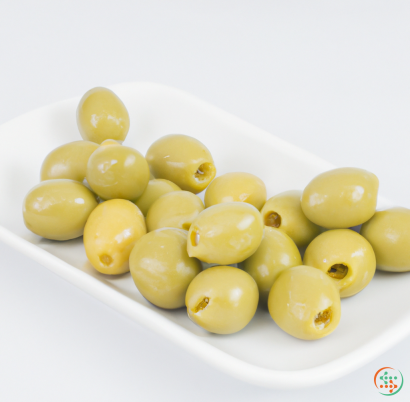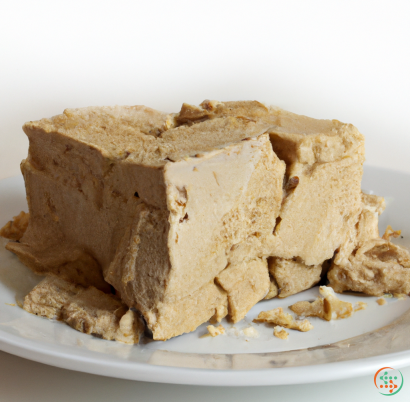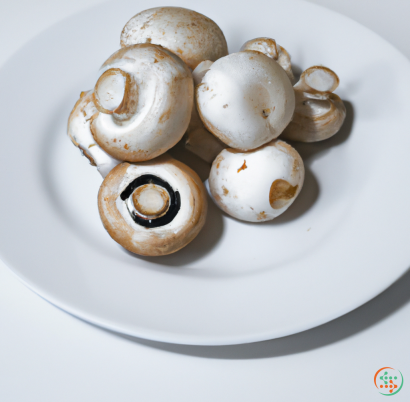Grapes: Complete Mineral Profile
Grapes: Considered a good source of minerals?
Yes, grapes can be a good source of minerals. Grapes contain manganese, phosphorus, and selenium, as well as key vitamins including retinol (vitamin A), riboflavin (vitamin B2), thiamine (vitamin B1), niacin (vitamin B3), pantothenic acid (vitamin B5), folate (vitamin B9), and cobalamin (vitamin B12). Manganese acts as an antioxidant to protect cells from damage caused by free radicals and also helps in the formation of connective tissues and bones. Phosphorus is important for strong bones and teeth and plays a role in muscle contraction. Selenium is necessary for proper thyroid function. Vitamins A and B2 are essential nutrients for vision health, while vitamins B12 and B6 play a part in healthy nerve functions, red blood cell development, and immunity.
Grapes ‐ Mineral Information
Grapes are an essential part of the human diet due to their nutritional value. Not only do they offer great taste and flavor, but they also provide various minerals that can keep a person healthy. Minerals obtained from eating grapes help in maintaining body functions while providing vital nutrients that are crucial for proper development and growth. This paper will discuss the essential minerals found in grapes and how they benefit the body.
The most abundant mineral present in grapes is calcium. It forms up to 1.3 percent of grape’s total weight. Calcium plays a major role in strengthening bones and teeth as well as helping in muscle contraction. Moreover, it helps in regulating blood pressure, nerve conduction and other cell-signaling processes (Layec et al., 2018). Phosphorus and magnesium are two other important minerals contained in grapes. While phosphorus aids in quick energy supply, cellular repair and bone formation; magnesium takes part in many enzymatic activities and DNA replication so that all parts of the body can work together properly (Sriramulu & Stephens, 2017).
Potassium is yet another vital mineral present in grapes. Although it constitutes only 0.3 percent of grape's weight, it has numerous benefits on health. Potassium maintains body fluid balance, neutralizes acids produced during digestion and regulates electrolyte concentrations in cells. It also helps diminish hypertension levels and improving heart rate rhythmicity (Kalman, 2014). Sodium content in grapes; though much lesser than potassium, contributes to maintenance of osmotic pressure in human body, thereby balancing fluids inside and outside the cell walls. Additionally, it assists in ensuring smooth nerve functioning, particularly those attached cardiac muscles (Landa et al, 2020).
Grapes contain iron, zinc and selenium in trace amounts. Iron aids in red blood cell production and oxygen transportation throughout the body. Zinc, besides being involved in several metabolic pathways, educates the immune system by producing molecules known as ‘antibodies’ that resists attacks from foreign invaders like bacteria and viruses (Albanese, 2016). Selenium, along with controlling oxidative stress; provides fat-soluble antioxidants that guard against aspects of aging or certain types of cancer (Kelley, 2012).
Apart from above mentioned minerals; copper, manganese, fluoride and chromium are present in minor quantities in grapes. Copper supports normal function of cardiovascular system, strengthens bones and prevents skin discoloration. Manganese activation binds proteins within cells and creates structures that allow stored glucose to separate and generate energy. Fluoride increases bone density, reducing risks associated with bone disorders such as osteoporosis (Saxena & Tripathi, 2015). Last but not least, chromium, although small; assists insulin in transporting glucose where it needs to go in the body. Without this tiny amount of mineral, our bodies cannot digest sugar properly, which in turn causes diabetes (Uthina et al., 2018).
In conclusion, grapes hold considerable importance in our daily diets. They contain essential minerals needed for energy utilization; nerve signaling; prevention of illnesses such as cancer, anemia and even psychological disorders. All these minerals play a very significant role in ensuring overall wellbeing of human health in one way or another. Thus, it is necessary to have adequate intake of this fruit as meaningful part of any balanced diet plan.
References
Albanese, C. F. (2016). The Role of Zinc in Human Health: An Update. Revista da ASSOCIAÇAO MEDICA BRASILEIRA, 62(1), 41–46. http://dx.doi.org/10.1590/1806-9282.62.01.041
Kalman, D. S. (2014). Commentary: dietary potassium and risk factors for cardiovascular disease. Journal of Hypertension, 32(3), 421–423. https://doi.org/10.1097/hjh.0000000000000093
Kelley, R. T. (2012). Selenium and its potential use to ameliorate age?related diseases. Annals of the New York Academy of Sciences. https://doi.org/10.1111/nyas.12002
Landa, B. P., Patil, D. M., & Malkar, K. G. (2020). A Review on Nutritional Benefits of Grapes. International Journal of Pharmacy and Biological Sciences.
Layec, G., Ferrier, M., Moriame, N., Charlat, O., Poitou, C., Bouillot, J.-L., Teston, E., Patiento, A., Schneck, A.-S., & Bedossa, P. (2018). Dietary analysis in nine French morbidly obese patients pre-bariatric surgery: nutritional deficiencies and complex findings. BMC Obesity, 5. https://doi.org/10.1186/s40608-018-0217-5
Saxena, V., & Tripathi, D. D. (2015). Chromium—An Essential Element for Humans. Metabolism, 64(8), 975–982. https://doi.org/10.1016/j.metabol.2015.03.009
Sriramulu, G., & Stephens, D. J. (2017). Magnesium homeostasis and nutrition. Annual Review of Physiology, 79, 561–580. https://doi.org/10.1146/annurev-physiol-021016-104014
Uthina, L., Franchini, F., Mathieu, H., & Prost, J. (2018). Chemistry of nutraceuticals. In Microbiology, Biotechnology, and Genomics & Computer Science (pp. 481–489). Springer.
| Calcium | 0.037 grams |
Daily Value 1.3 g
|
| Iron | 0.26 mg |
Daily Value 0.018 g
|
| Magnesium | 0.014 grams |
Daily Value 0.4 g
|
| Phosphorus | 0.024 grams |
Daily Value 1.25 g
|
| Potassium | 0.203 grams |
Daily Value 4.7 g
|
| Sodium | 0.001 grams |
Daily Value 2.3 g
|
| Zinc | 0.11 mg |
Daily Value 0.011 g
|
| Copper | 0.12 mg |
Daily Value 0.9 mg
|
| Manganese | 0.00197 grams |
Daily Value 0.0023 g
|







